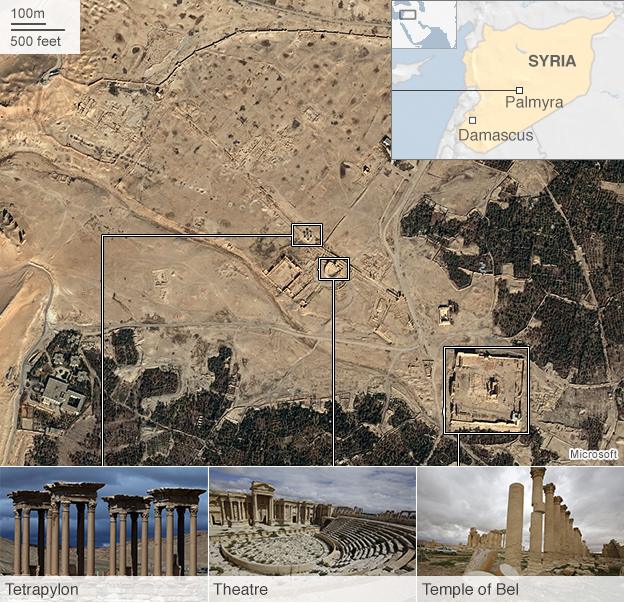Syrian archaeologist 'killed in Palmyra' by IS militants
- Published
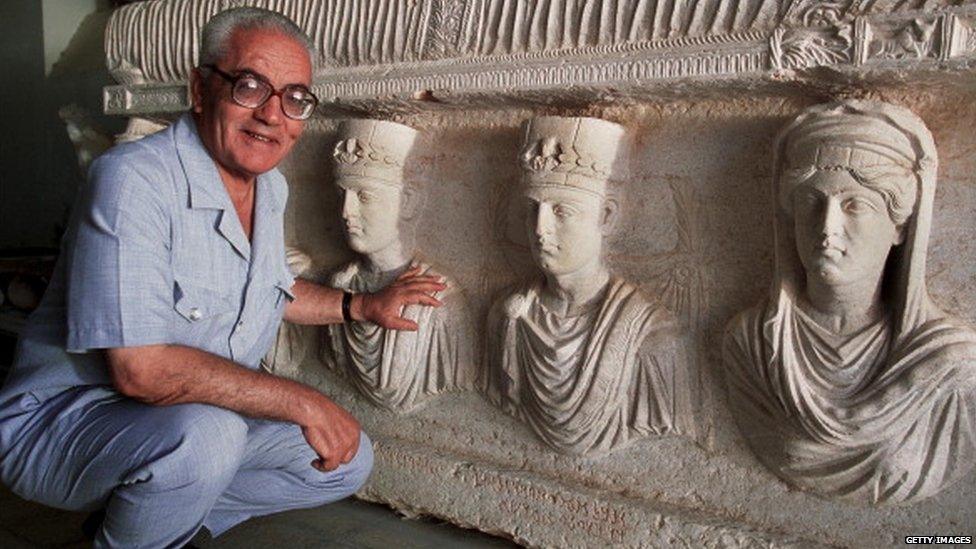
Khaled al-Asaad was taken hostage after IS seized the Unesco World Heritage site this year
The archaeologist who looked after ancient ruins of Palmyra in Syria for 40 years is reported to have been killed by Islamic State (IS) militants.
Khaled al-Asaad had been held for about a month by the group, which seized the Unesco World Heritage site in May.
The 81-year-old's family informed Syria's director of antiquities Maamoun Abdul Karim that he had been beheaded.
Mr Karim said IS militants had tried to extract information from Mr Asaad about where some treasures were hidden.
He described Mr Asaad as "one of the most important pioneers in Syrian archaeology in the 20th Century".
The murder has been denounced as a "horrific act" by Unesco, the UN cultural organisation.
"They killed him because he would not betray his deep commitment to Palmyra," Unesco Director General Irina Bokova said in a statement, external.
"His work will live on far beyond the reach of these extremists," she said. "They murdered a great man, but they will never silence history."
IS has demolished several ancient sites in Iraq, and there are fears that it will destroy Palmyra, one of the archaeological jewels of the Middle East.
'Stores of gold'
The Syrian state news agency, Sana, and the UK-based Syrian Observatory for Human Rights reported that Mr Asaad had been beheaded on Tuesday at a square outside the museum in the modern town next to the ruins, also known as Tadmur, in front of dozens of people.
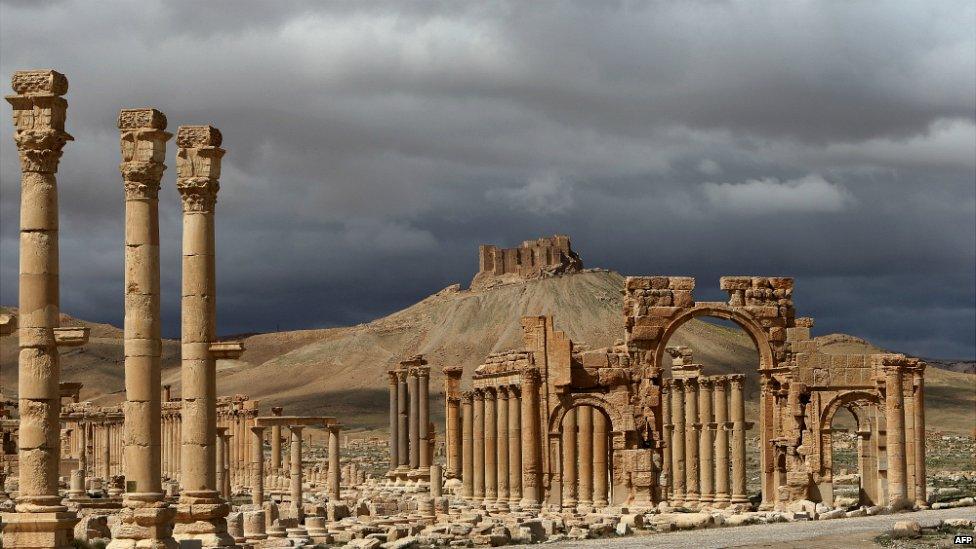
Palmyra is considered one of the most important historical sites in the Middle East
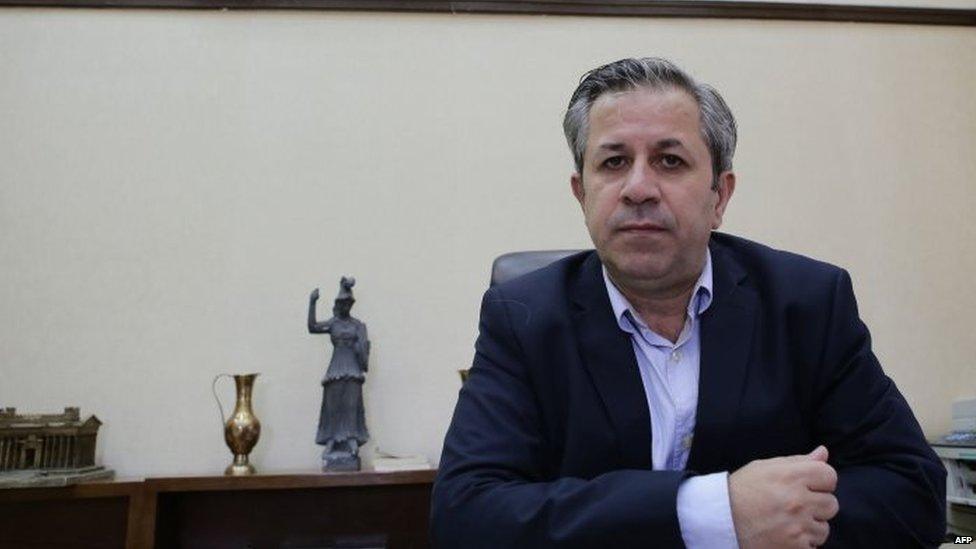
Syria's Director of Antiquities Maamoun Abdul Karim has denounced the presence of IS in Palmyra as "a curse and a bad omen"
Photos apparently showing Mr Asaad's body tied to what appears to be a lamp-post adjoining a main road have been circulated online by IS supporters. His severed head was placed underneath it.
A sign attached to the body accused him of being an apostate who was in regular communication with and supported the government of Syrian President Bashar al-Assad.
He was also accused of representing Syria at overseas conferences with "infidels", in addition to being director of Palmyra's "idols".
The summary killing was one of several that have been carried out by IS in and around Palmyra since they took the city in May.
Mr Asaad spent most of his life working to promote and protect Palmyra.
He was in charge of the site for four decades until 2003, when he retired. He then worked as an expert with the antiquities and museums department.

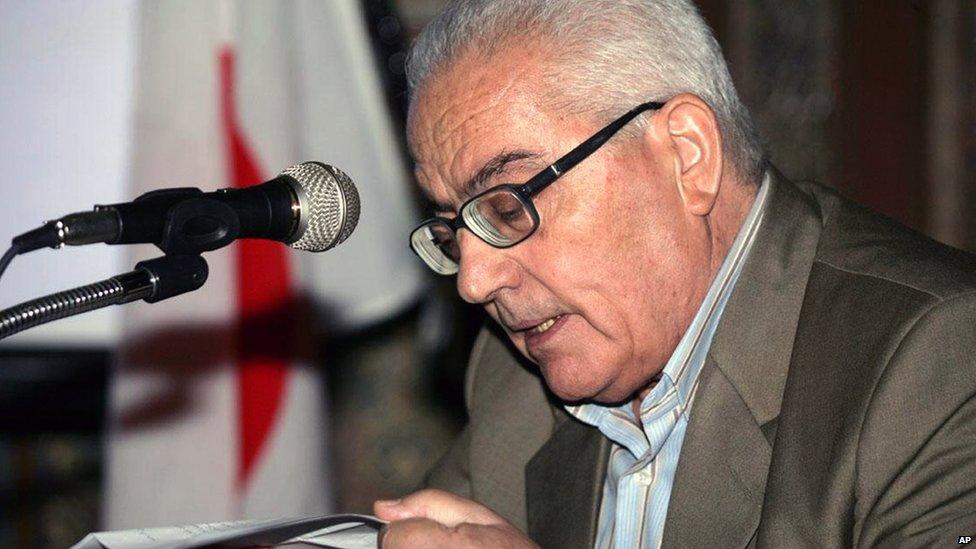
Khaled al-Asaad
Born in Palmyra in 1934
Served as director of antiquities of Palmyra from 1963 to 2003 until his retirement
Worked with Unesco and the European Commission on Palmyra-related projects
Most important discovery was that of the largest part of the city's major intersection and a number of tombs around the ruins
Reported to have written more than 20 books on Palmyra and the Silk Road
Said to be fluent in Aramaic and translated texts from the language up until 2011
Received honours from France, Poland and Tunisia


Jihadists in Palmyra were looking for "stores of gold" in the city, Mr Karim said, [but] "I deny wholeheartedly that these stores exist".
Mr Karim described Mr Asaad as "a scholar", while denouncing the presence of IS in Palmyra as "a curse and a bad omen" on the city and "every column and every archaeological piece in it".
Abdalrazzaq Moaz, co-director of cultural heritage initiatives at the American Schools of Oriental Research (ASOR), told the BBC that Mr Asaad had devoted his entire life to the site and died trying to protect it.
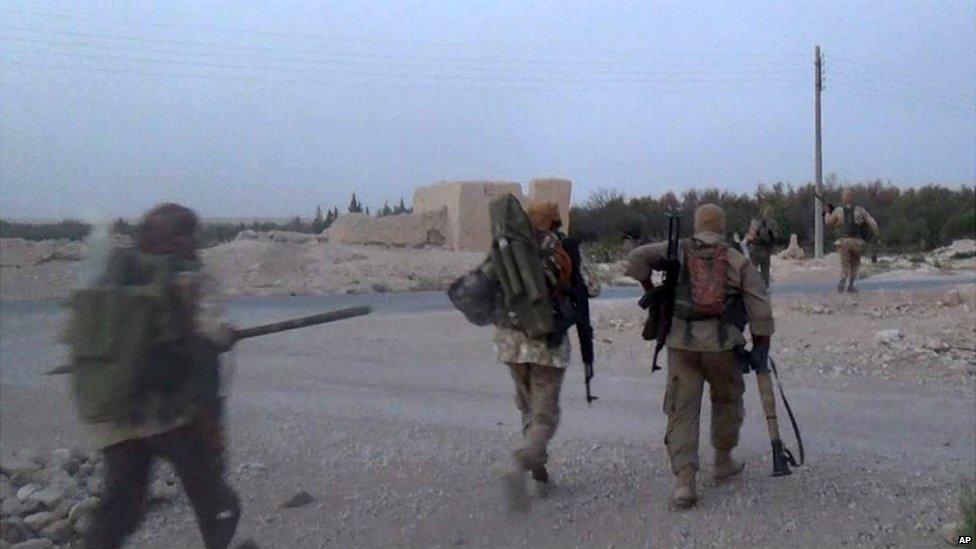
Islamic State fighters remain in control of Palmyra despite a Syrian army offensive
Since overrunning Palmyra, IS has destroyed a second century statue of a lion and two nearby Islamic shrines, which it described as "manifestations of polytheism".
The group also released a video in July showing some 20 captured government soldiers being shot dead at Palmyra's theatre.
Syrian government forces have sought to drive IS out of the Palmyra area in recent months and there has been fierce fighting in nearby towns.
Also on Wednesday, new images were posted online appearing to show IS "religious police" vandalising ancient artefacts in the northern Iraqi province of Nineveh.
Unesco's statement said that Mr Asaad's death was part of two intense blows within a week that had been endured by Syria's cultural heritage community.
It said that Qasem Abdullah Yehiya, a senior member of the Directorate-General of Antiquities and Museums, was also reported to have been killed in a rocket attack on the Citadel of Damascus last week.
